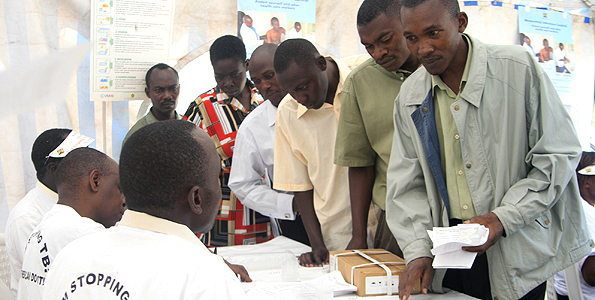The government has explained its strategies for the envisaged expansion of medical treatment services for tuberculosis (TB) following a reported increase in the number of cases.
Tabling his ministry’s budget estimates for the financial year 2014/2015, the Minister for Health and Social Welfare, Dr Seif Rashid, told the National Assembly that data have it that the number of TB patients is on the increase and people above 45 years of age are highly affected. “For the first time the TB Prevalence Survey was conducted last year.
It showed that the disease remains a threat with 295 people affected out of 100,000. People above 45 years of age are highly affected as compared to youths,” he said.
Dr Rashid noted further that the government will continue with efforts to take TB treatment services to lesser hospitals from the Kibong’oto Hospital which is a specialized medical centre for TB treatment.
He added that TB services will be put up in mining areas as the study indicates that miners are in a risky environment when they contact the disease which is airborne.
Dr Rashid noted that Gene-Xpert machines will be distributed around the country to increase hospitals’ capacity of diagnosing TB patients. In another development, the minister said that the ministry’s efforts in collaboration with its stakeholders have managed to reduce HIV/ AIDS prevalence rate to 5.3 per cent in 2012 from 5.8 in 2008.
“This achievement has been registered following various efforts and campaigns geared at counselling and voluntary tests,” he said.
He noted that by December 2013, the number of people who had tested has increased from 11,640 in 2009 to 20,469,241 which is equal to an average of an increase of 2,000,000 per annum.
“The increase in number is a vivid demonstration that the society is highly motivated and informed on the need to understand their health status,” he said.
Dr Rashid noted that 457,901 HIV/AIDS patients were tested for TB out of which 5,413 patients or 1.2 per cent were discovered to have contracted TB and were put into treatment.
Source: All Africa


